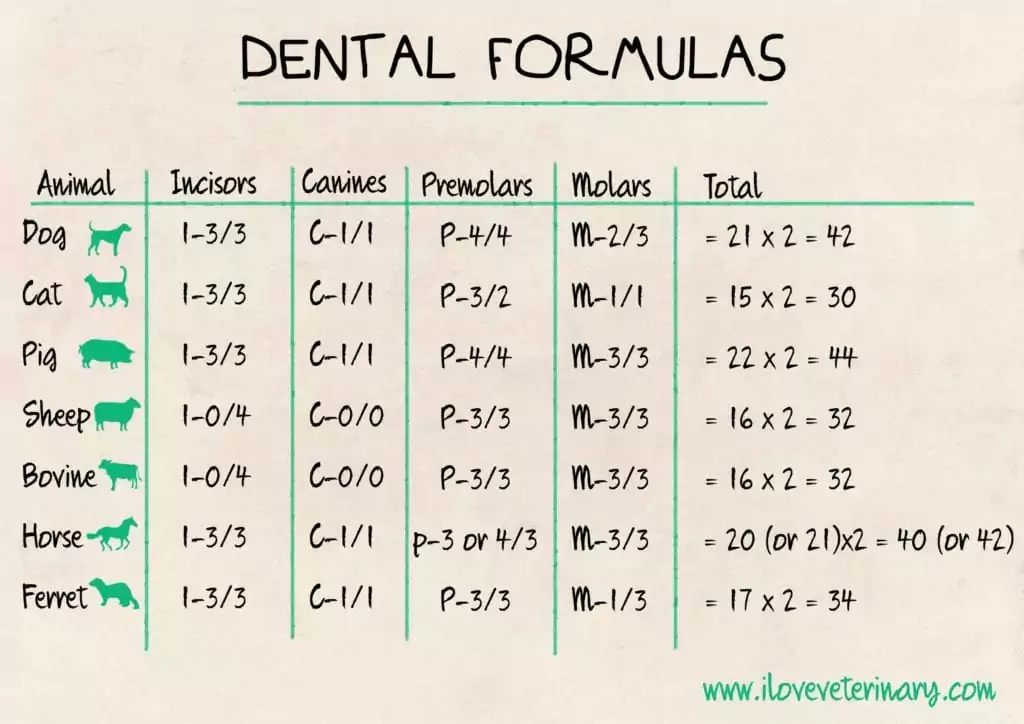
Dental Formulas Facts and comparisons
- A dog’s dental formula typically includes 42 teeth, which is more than the typical human dental formula of 32 teeth.
- The dental formula for a dog is similar to that of other carnivorous animals, such as wolves and lions.
- The dental formula of a dog is unique in that it includes four premolars in both the upper and lower jaw, while human dental formula has only two premolars in each jaw.
- Canine dental formula is used as a diagnostic tool for identifying and treating dental issues in dogs, such as periodontal disease.
- The dental formula for a canine is similar to that of other domesticated mammals like cats.
- The dental formula of a cat is similar to that of a dog but with slightly less teeth, with typically 30 teeth.
- A cow’s dental formula typically includes 32 teeth, which includes incisors, canines, premolars, and molars. The cow’s dental formula is different than other domesticated mammals like horse, sheep, and pigs. They have a set of teeth called incisors in the front of the jaw which are used for grazing.
- The dental formula for a cow is used as a diagnostic tool for identifying and treating dental issues in cows, such as overgrown or misaligned teeth.
- Sheep dental formula typically includes 32 teeth, which includes incisors, canines, premolars and molars.
- Pig dental formula typically includes 44 teeth.
- Pigs have a set of teeth called tusks, which are elongated canines that can grow up to 4 inches long. These tusks are located in the upper jaw and can continue to grow throughout the pig’s life. They are used for defense, foraging, and social interactions.
- Horse dental formula typically includes 40 teeth, which is different than other domesticated mammals like cows, sheep, and pigs. They have a set of teeth called wolf teeth, located in front of the cheek teeth.
